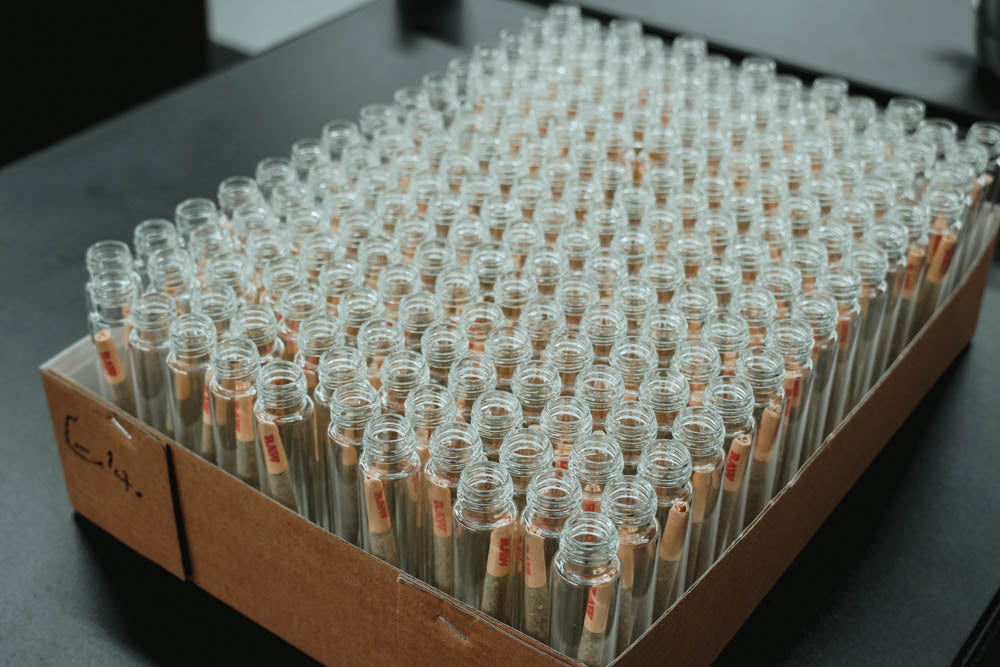
Cannabis is Like Apples.
Share
Understanding Hemp, Marijuana, and the Legality of THCA.
Let’s talk about cannabis–but in a way that actually makes sense.
Picture this: you’re standing in a grocery store holding a Macintosh apple in one hand and a Granny Smith in the other. They’re both apples, right? Just different types. Now imagine the same is true for cannabis. That’s right–cannabis is like apples.Hemp vs. Marijuana: Just like Macintosh vs. Granny Smith
Cannabis is the overarching plant family–like apples. Under that umbrella, there are two legal categories:
1. Hemp: Cannabis that contains less than 0.3% Delta-9 THC (the compound that gets you high).
2. Marijuana: Cannabis that contains more than 0.3% Delta-9 THC.
That 0.3% threshold is what legally separates hemp from marijuana. It's not about how the plant looks or grows –just the percentage of one specific compound.
Kind of like how both Macintosh and Granny Smith apples come from seeds but vary in flavor, cannabis can grow in different forms–but it's still all cannabis.
How the Farm Bills Changed the Game
The distinction between hemp and marijuana wasn’t always clear. But in 2014, the U.S. government passed the Farm Bill, which created two legal “tracks” for cannabis:
Marijuana = high in Delta-9 THC = illegal at the federal level
Hemp = low in Delta-9 THC = allowed under pilot programs
That bill removed hemp (and all its cannabinoids) from the Controlled Substance Act –as long as Delta-9 THC stayed under 0.3%. This meant that cannabinoids like CBD, CBG, and even THCA became federally legal when derived from hemp.
Wait –What is THCA?
Glad you asked. THCA (tetrahydrocannabinolic acid) is the raw, non-psychoactive form of THC. It's naturally present in the cannabis plant before it's exposed to heat.
Once heated—by lighting a joint, vaping, or baking—THCA converts into Delta-9 THC, the stuff that gives you that elevated feeling.
Here's the kicker: hemp flowers or products that are high in THCA but low in Delta-9 are still considered legal hemp, because they meet the federal requirement of less than 0.3% Delta-9 THC at the time of testing.
It's legal cannabis that's chemically designed to kick in after you heat it. And that's all there is to what we call the "legal loophole."
What About All Those Other Cannabinoids?
Once the door was opened, the industry got creative. With hemp as the legal base, brands began isolating and selling “novel” cannabinoids—compounds like:
- THC-P
- HHC-P
- THC-O
- THC-V
-
Delta-10
These compounds aren’t new to the plant—but they are new to the market, emerging from innovative hemp processing and loophole-savvy legislation.
So…Is THCA Legal?
Yes—with some conditions.
THCA is federally legal when derived from hemp and when Delta-9 levels remain under 0.3% by dry weight. However, state laws can vary, and regulation is rapidly evolving. Some states have moved to restrict or ban certain hemp-derived THC products, while others allow them with open arms.
As a consumer, always check your state’s laws and buy from brands (like us) that lab test and clearly label their products.
Bottom Line: It’s All Cannabis
Just like Macintosh and Granny Smith are both apples with different flavors, hemp and marijuana are both cannabis—just regulated differently. THCA is part of that family, offering a legal way to explore cannabis experiences under the hemp umbrella.- Read the 2018 Farm Bill here.
- Dive deeper into this article explaining THCA's potential benefits.

